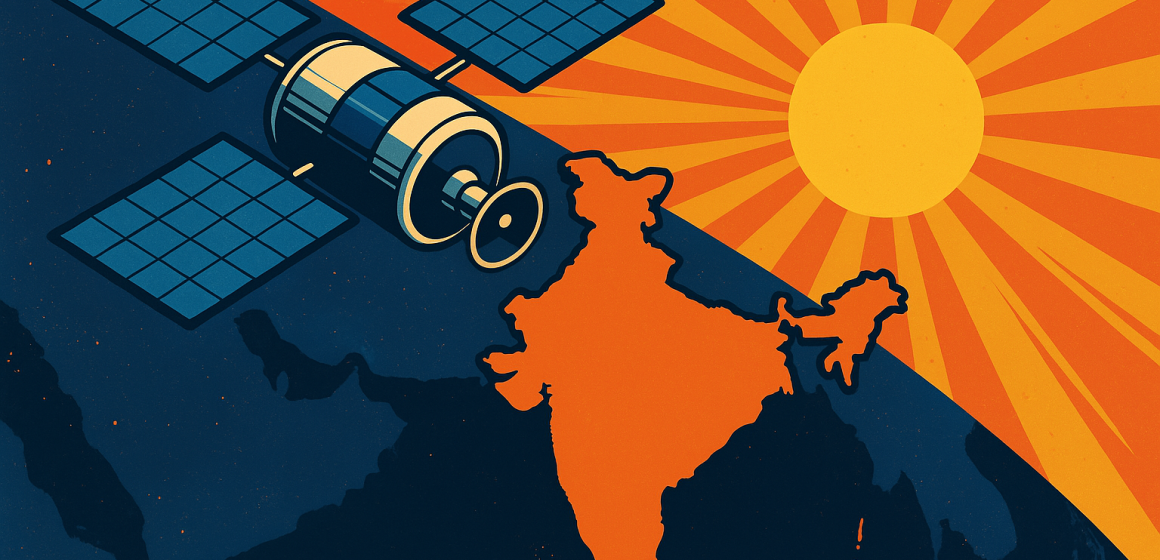As India ramps up policy support, global satellite operators are positioning to meet soaring demand for broadband connectivity.
The current enabling policy environment in India’s spacetech sector—particularly satellite communications—is poised to significantly bolster both investments and connectivity, according to one of the country’s leading telecom authorities.
Calling the recent Telecom Regulatory Authority of India (TRAI) recommendations on satellite spectrum allocation “very pro-industry”, Bharat Bhatia, President of the ITU-APT Foundation of India, noted,
“The recommendations provide for a 4 per cent AGR (adjusted gross revenue) as spectrum fees, which is very reasonable and in line with global standards. We believe that once the Department of Telecom (DoT) acts on spectrum allocation, it will trigger major new investments and enable us to connect numerous underserved regions.”
He emphasised that satellite spectrum rollout would be especially impactful for reaching the 500 million unconnected Indians.
“Through satellite services, particularly NGSO (non-geostationary orbit) networks, we’ll be able to reach people in remote areas. Key sectors like agriculture, education, and health, which rely heavily on satellite-based connectivity, will benefit enormously.”
Bhatia also projected robust job creation in spacetech, likening India’s potential to current trends in the US.
“Just like in the US, Indian firms will increasingly work in the space sector, creating broad opportunities across industries.”
He was speaking on the sidelines of the second edition of Space Policy Conference in New Delhi last week.
Bandwidth India!
Meanwhile, global satellite operators are preparing to tap into the country’s growing demand. On July 21, the Indian National Space Promotion and Authorisation Centre (IN-SPACe) formally approved Elon Musk’s Starlink to offer satellite broadband services in India.
Telesat, OneWeb, Inmarsat, and Viasat are also in active discussions with regulators.
Sharing her company’s strategy, Laura Roberti, Director for Spectrum & Market Access at Canada-headquartered Telesat, explained, “Telesat will not sell directly to users in India. Instead, we’ll partner with telecom operators and service providers to deliver connectivity. We believe this business-to-business model is more sustainable for India’s telecom ecosystem.”
OneWeb—backed by Bharti Airtel founder Sunil Bharti Mittal—has been preparing to roll out services for the past two years and awaits regulatory clearance.
Tony Azzarelli, Vice President, Eutelsat OneWeb, added, “We deliver connectivity to places that currently have none. The access enabled by LEO (low Earth orbit) constellations will help create jobs and spur new or existing businesses, especially for communities currently lacking telecom infrastructure.”
India is home to the world’s second-largest telecom market, driven by affordable data plans, expanded 4G and 5G reach, and surging smartphone adoption. Following liberalisation of the space sector in 2020, the country now hosts more than 200 spacetech startups focused on everything from launch vehicles to satellite constellations.
-Manish Pant


